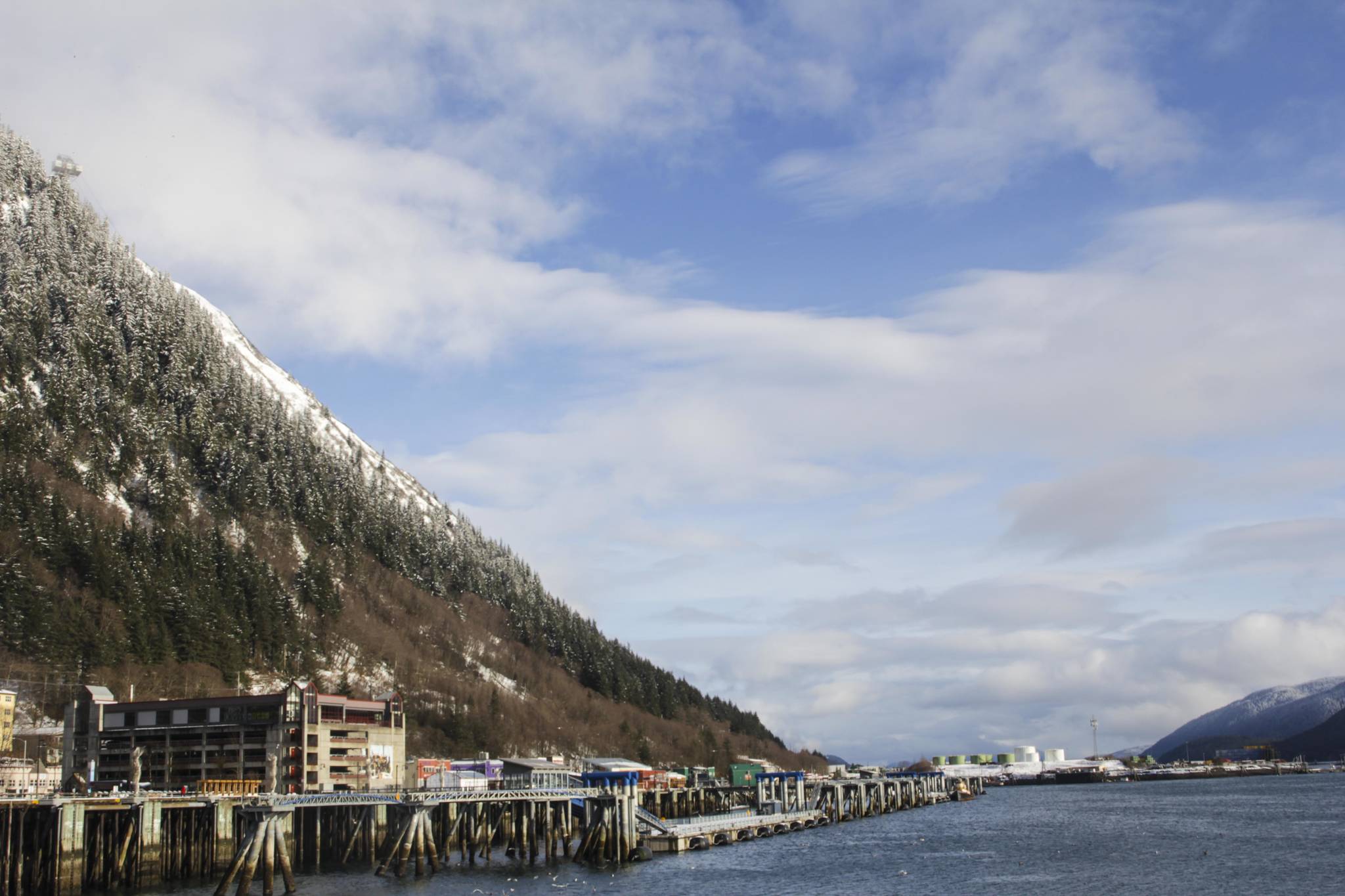On Thursday, the Juneau Commission on Sustainability addressed an oft-asked question: What’re the effects of cruise ship emissions on Juneau’s air quality?
The issue isn’t a new one, said Alaska Department of Environmental Conservation air quality chemist Kayl Overcast, the first guest speaker at a new series of JCOS luncheons.
“Following the 2017 and 2018 summer cruise seasons, there was a sharp increase in the number of complaints,” Overcast said in the Zoom webinar. “There was a push from the community and DEC to determine what the air quality was like downtown.”
In 2019, DEC began a study around Juneau measuring particulate matter of 2.5 micrometers or less, called PM2.5. Particulate matter is another way of saying things in the air, which is what air pollution is made of. The last such study to occur in Juneau prior to ‘19, Overcast said, was in 2001.
DEC personnel set up more than 20 sensors near the waterfront, on the city hall, throughout the Flats, and in the elevated terrain near Starr Hill, as well as one sensor in North Douglas, Overcast said.
[Resiliency and focus: Hockey coach looks back on limited season]
However, 2019 was marked by air pollution from other sources than just cruise ships, which complicated readings, Overcast said.
“Throughout the entire summer there was elevated PM from wildfire smoke,” Overcast said. “There was a really dense cloud of smoke blowing down from Canada.”
big hill
Assessing the overall impact on air quality was also made difficult by other factors. From the variable schedule of the cruise ships, to wind conditions, to local sources of air pollution like controlled burns or even outdoor food carts, it could be difficult to correlate the cruise ships to specific spikes in PM2.5 activity. Juneau’s frequent rain and other meteorological conditions also damped down air pollution, as well as an effort by cruise companies in early 2019 to use lower-sulfur marine diesel and to rely more heavily on shore power while in Juneau, Overcast said.
“As the ships come up the channel here, if there’s very little wind, you can see the emission plumes linger all the down the channel,” Overcast said. “It settles down in the channel. As the wind shifts, they make their way toward downtown Juneau.”
In the short term, Overcast said, cruise ship emissions did demonstrably affect Juneau. But in the long term, air quality was well within acceptable tolerances. Wildfires were a larger threat to air quality in 2019.
“Air quality in Juneau is good, with only a few days as moderate to bad for sensitive populations due to wildfires,” Overcast said. “There’s strong evidence for short term impact from cruise ships.”
DEC has moved on to installing several AQMesh sensor pods around Juneau for more accurate readings. The AQMesh sensors have higher fidelity and more sensors for better data capture, Overcast said. Several pods are up and running in Juneau and Ketchikan, overcast said, with DEC working with other communities to install more. Installing the devices in Southeast Alaska does pose some challenges, however.
“It turns out that running anything on a solar panel in a rainforest can be challenging,” Overcast said. “Our plan was to run them through the summer, but we didn’t get them till later in the summer. There’s a lot that goes into air quality and it’s very dependent on meteorological conditions. We’re going to be running these for another season.”
It takes a few years to get accurate readings for environmental data, Overcast said. Getting the more sensitive sensor pods installed couldn’t have been done without help.
“We had a huge chunk of volunteers that helped us out,” Overcast said. “It was incredibly valuable having y’all help out.”
The next luncheon webinar will be on April 24 at noon, and can be accessed on Sustainable Juneau’s Facebook.
• Contact reporter Michael S. Lockett at (757) 621-1197 or mlockett@juneauempire.com.

